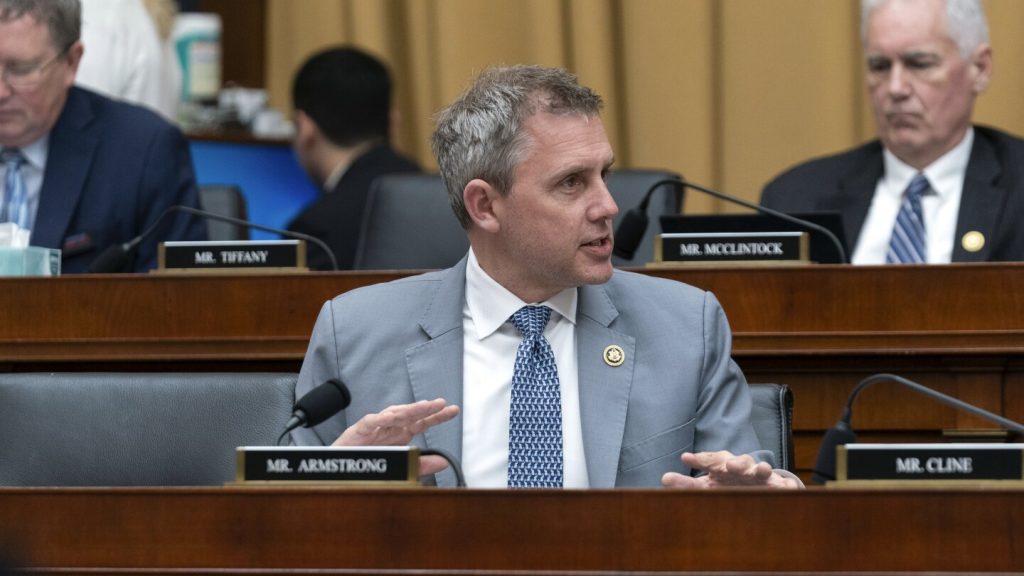In the recent Republican primaries in North Dakota, U.S. Rep. Kelly Armstrong emerged victorious in the race for governor, defeating Lt. Gov. Tammy Miller. Armstrong, who is currently serving North Dakota’s lone House seat, will be in a commanding position for the general election in November. On the other hand, longtime public utilities regulator Julie Fedorchak finished first in a competitive GOP race for the House seat that Armstrong will vacate. Fedorchak won in a five-way contest and will be the first woman to represent North Dakota in the House.
The GOP primaries are crucial in North Dakota, where Democrats have not won a statewide contest since 2012. Some legislative races had only GOP candidates this year, emphasizing the dominance of the Republican Party in the state. Armstrong, an attorney and former state senator, had endorsements from the state party and from former President Donald Trump, setting him up as a strong contender for the gubernatorial seat. He will face Democratic state Sen. Merrill Piepkorn in the general election.
In addition to the gubernatorial and House races, voters in North Dakota also approved a high-profile initiative that would restrict individuals from running or serving in the U.S. House or Senate if they are to turn 81 years old during their term. This initiative aims to prevent age-related and cognitive issues among officeholders, and it could potentially be a test case for revisiting congressional term limits based on a 1995 U.S. Supreme Court ruling. The measure was met with opposition from Republican U.S. Sen. Kevin Cramer, who believed that voters should have the freedom to elect candidates of their choosing.
The House primary, won by Fedorchak, saw a diverse group of Republican contenders, including military veteran Alex Balazs, plastic surgeon Rick Becker, and former Miss America Cara Mund. Fedorchak will face military veteran Trygve Hammer, who won the Democratic primary, in the general election. The campaign was marked by negative ads and controversy over misleading text messages that portrayed Fedorchak as dropping out of the race.
Overall, the primaries in North Dakota highlighted the strong Republican presence in the state, with endorsements from influential figures like Trump playing a significant role in shaping the outcomes. As the candidates gear up for the general election in November, the focus will be on balancing priorities, spending, tax cuts, and property tax reform in a time when state finances are stable. The voter turnout for the primaries, historically low in North Dakota, will also be a point of consideration as the candidates move forward in the campaign trail.


